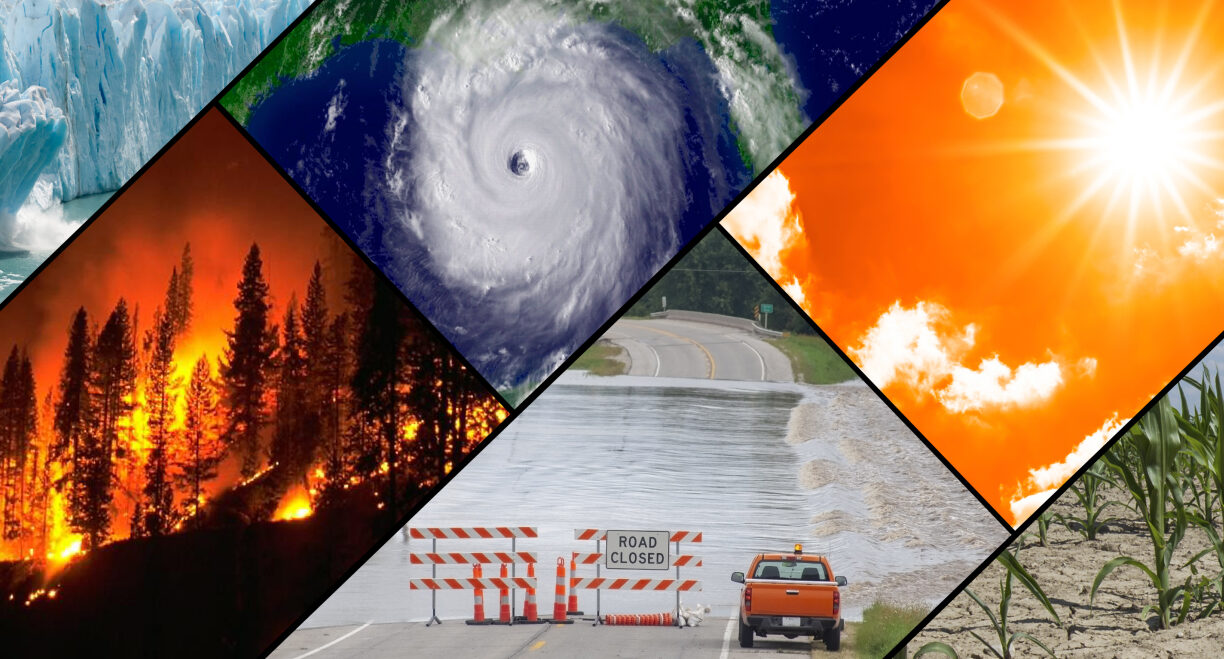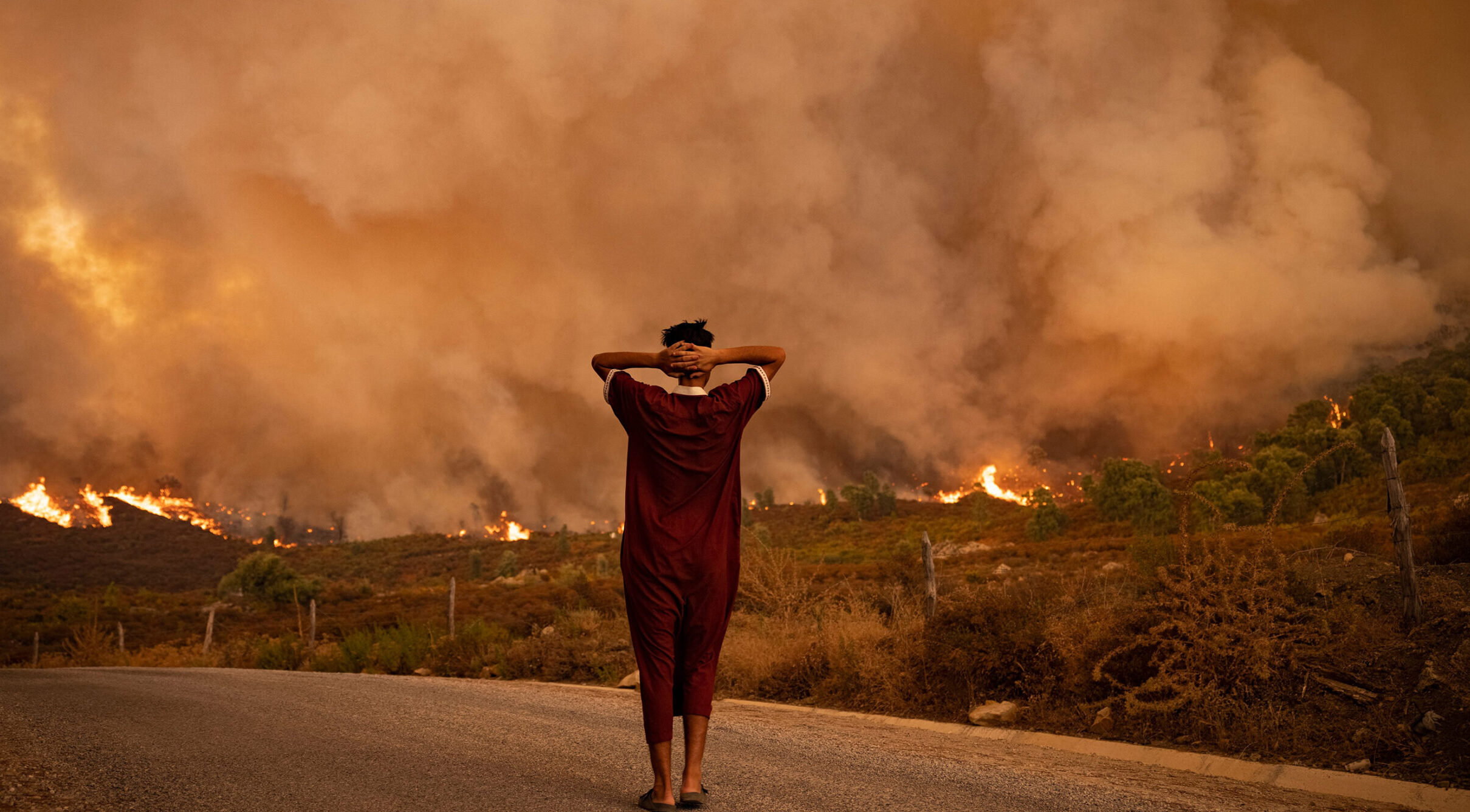
The greenhouse effect is a natural process that helps to warm the Earth’s surface. When the Sun’s energy reaches the Earth’s atmosphere, some of it is absorbed by the Earth’s surface and some of it is reflected back into space. However, greenhouse gases, such as carbon dioxide, trap some of this energy and prevent it from escaping into space.
This results in a warming effect on the Earth’s surface, known as the greenhouse effect. Scientists have determined that carbon dioxide’s warming effect helps stabilize Earth’s atmosphere, and removing carbon dioxide would cause the terrestrial greenhouse effect to collapse. The greenhouse effect is essential for maintaining a comfortable climate on Earth, but human activities have contributed to an increase in the concentration of greenhouse gases, leading to climate change.
Human activities, such as burning fossil fuels, deforestation, and farming livestock, have significantly contributed to climate change by releasing large amounts of greenhouse gases into the atmosphere. The increase in greenhouse gas concentrations has led to a rise in global temperatures, which has resulted in glacial retreat, sea level rise, and changes in weather patterns. Paleoclimate evidence suggests that current warming is occurring roughly ten times faster than the average rate of warming after an ice age. Thus, it is crucial to reduce greenhouse gas emissions and transition to renewable energy sources to mitigate the impacts of climate change.
There is substantial evidence of climate change, including temperature rise, glacial retreat, and sea level rise. The instrumental record of climate change is derived from thousands of temperature and precipitation recording stations around the world, which have shown an increase in global temperatures. Glaciers and ice sheets worldwide are melting and adding water to the ocean, causing sea levels to rise. Paleoclimate evidence also suggests that climate change has contributed to sea level rise in the past. Thus, it is essential to understand the science behind climate change and take action to find solutions to mitigate its impacts.
The impacts of climate change on the environment and society
Climate change has significant impacts on biodiversity and ecosystems. The changes in temperature, precipitation patterns, and extreme weather events are disturbing natural habitats and species, leading to a decline in biodiversity and ecosystem services. Climate change also affects the health of ecosystems, causing shifts in the distribution of plants, viruses, animals, and even human settlements. A study by Malhi et al. in 2020 demonstrated that climate change ultimately drives terrestrial biodiversity loss and affects ecosystem carbon storage both directly and indirectly via land use. Thus, the impacts of climate change on biodiversity and ecosystems have far-reaching consequences and require immediate action to mitigate further damage.
Climate change also has significant impacts on human health and safety. Extreme weather events such as heatwaves, droughts, and floods can lead to injuries, illnesses, and even death. Climate change can also worsen air quality and increase the spread of infectious diseases, posing significant health risks. The mental health impacts of extreme weather events are also a growing concern. The World Health Organization estimates that climate change will cause nearly 250,000 additional deaths per year between 2030 and 2050. Thus, it is crucial to address the impacts of climate change on human health and safety to ensure the well-being of individuals and communities worldwide.
Climate change also has significant economic impacts, affecting various sectors of the economy and potentially trapping more people in poverty. A recent report examined how climate change could affect 22 different sectors of the economy under different scenarios, demonstrating the need for urgent action to mitigate further damage. Furthermore, the uncertainty surrounding the economic impacts of climate change is vast and right-skewed, making it challenging to quantify the full extent of the damage. However, science-led solutions can play a critical role in delivering rapid decarbonisation and helping communities to adapt to the impacts of climate change. Thus, it is essential to take action to address the economic impacts of climate change and work towards creating a sustainable and resilient future.

Solutions to mitigate and adapt to climate change
Mitigation strategies are key to reducing greenhouse gas emissions and slowing the progression of climate change. One such strategy is the use of renewable energy, such as wind and solar power, which can replace the need for fossil fuels. Another strategy is carbon pricing, which can incentivize companies to reduce their carbon footprint and invest in cleaner technologies. Sustainable agriculture practices, such as soil health management, can also help sequester carbon and reduce greenhouse gas emissions. By implementing these mitigation strategies, we can work towards reducing our impact on the environment and mitigating the effects of climate change.
Adaptation strategies are also crucial for managing the effects of climate change that are already underway. Climate-resilient infrastructure, such as sea walls and flood barriers, can help protect communities from rising sea levels and increased flooding. Disaster preparedness, including early warning systems and emergency response plans, can help mitigate the impact of extreme weather events. Additionally, cities and communities can implement measures such as green roofs and permeable pavement to manage stormwater and reduce the risk of flooding. By adapting to the impacts of climate change, we can reduce the risk of harm to people and the environment.
Ultimately, global cooperation and policy action are needed to address the urgent threat of climate change. International agreements, such as the Paris Agreement, provide a framework for countries to work together towards reducing greenhouse gas emissions and mitigating the impacts of climate change. Science-led solutions and technology cooperation can also play a critical role in achieving these goals. As we work towards building more inclusive and sustainable economies, it is important to prioritize the health of our planet and take action to protect it for future generations.







